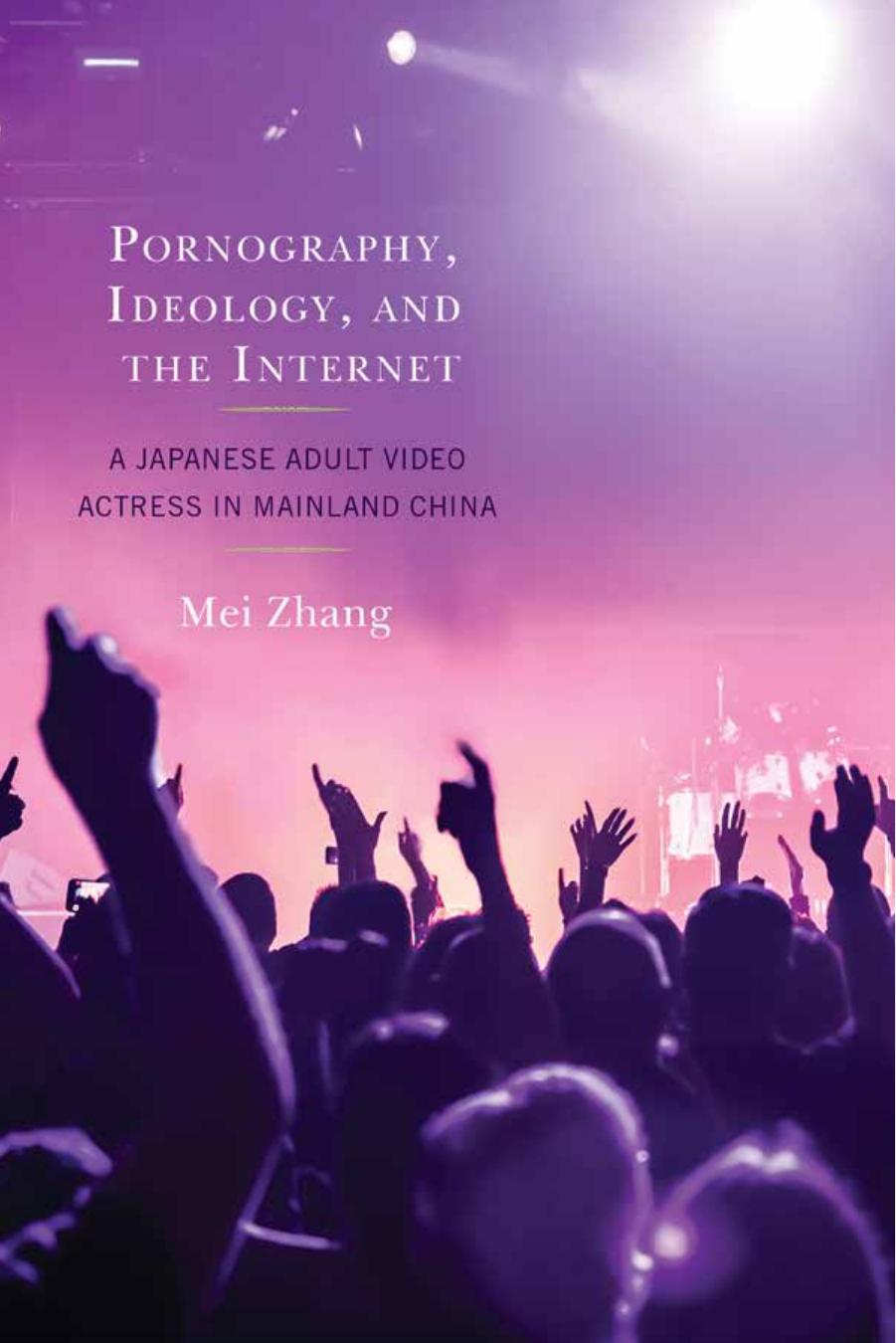Pornography, Ideology, and the Internet by Zhang Mei

Author:Zhang Mei
Language: eng
Format: epub, pdf
Publisher: Lexington Books, a division of Rowman & Littlefield Publishers, Inc.
Chapter 5
Sola’s Image Transformation
Becoming a Site of Contestation
In the previous chapter I examined the signifying practices of the two Chinese agencies in the process of promotion and pointed out that many signs contributing to the positive image of Sola as hardworking, dream chasing, and humorous were selected, while the signs relating her to AVs and politics were rejected. However, a series of questions remains: Why were the signs related to AV and politics rejected by the two agencies? Could the agencies actually avoid completely Sola’s association with AV and politics in Chinese cyberspace through their efforts to transform her image? In this chapter I will shift the focus from a specific example of promotion to the broader landscape of the Chinese media as a whole, including social media, Party media, and commercial news portals. This chapter will examine how the coexistence of and the gap between Sola’s previous image as a Japanese AV actress on the one hand and the new image that her agencies attempted to construct on the other hand make her a site of contested meaning. In particular, we will see this through the analysis of her diverse representations circulating in the media. As these representations tend to be ideological (Taylor and Willis 1999, 40), I will pay special attention to the interaction between Sola’s image and the dominant ideologies of the Party-state.
This chapter will start by looking at Sola’s image as a cultural ambassador between China and Japan, as it was effectively constructed through Weibo, to point out how her “Japaneseness” and “Chineseness” are related to the ideology of patriotism. The Diaoyu Islands dispute in 2012 will also be introduced to demonstrate the tension between her “Japaneseness” and “Chineseness.” The second part of this chapter will analyze how her status as an “AV” actress became a major obstacle to her image transformation. Since Chinese media are not monopolistic, her status as an AV actress is represented in different ways in different media, particularly in Party media and commercial news portals. The case of the Global Times will be introduced to indicate how Sola has become a site of struggle surrounding “anti-vulgarization” and “vulgarization.”
Sola’s “Japaneseness” and “Chineseness”
According to Yang’s agenda, the objective of Sola’s transformation was to reposition her image away from that of a “Japanese” and an “AV” actress and toward that of a true artist with excellent performing skills who could be a cultural ambassador between China and Japan. Although she won the favor of her Chinese audience by expressing her love of China and Chinese culture, the tension between her status as a “Japanese” star and her “Chineseness” still remains.
Patriotism and Anti-Japanese Sentiment
Patriotism has become an important part of dominant ideology of the Party-state. Loving the nation (aiguo) is regarded as the “natural attitude” of any Chinese person (Davies 2008). Previous scholarship has analyzed the link between patriotism and the celebrity effect in China. For example, patriotism is one important criterion for the selection of the winners of the Outstanding Mothers’ campaign sponsored by the government (Guo 2010).
Download
Pornography, Ideology, and the Internet by Zhang Mei.pdf
This site does not store any files on its server. We only index and link to content provided by other sites. Please contact the content providers to delete copyright contents if any and email us, we'll remove relevant links or contents immediately.
Rewire Your Anxious Brain by Catherine M. Pittman(18654)
Talking to Strangers by Malcolm Gladwell(13370)
The Art of Thinking Clearly by Rolf Dobelli(10489)
Mindhunter: Inside the FBI's Elite Serial Crime Unit by John E. Douglas & Mark Olshaker(9343)
Becoming Supernatural by Dr. Joe Dispenza(8217)
Change Your Questions, Change Your Life by Marilee Adams(7781)
Nudge - Improving Decisions about Health, Wealth, and Happiness by Thaler Sunstein(7706)
The Road Less Traveled by M. Scott Peck(7603)
The Lost Art of Listening by Michael P. Nichols(7506)
Mastermind: How to Think Like Sherlock Holmes by Maria Konnikova(7347)
Enlightenment Now: The Case for Reason, Science, Humanism, and Progress by Steven Pinker(7313)
Win Bigly by Scott Adams(7198)
The Way of Zen by Alan W. Watts(6614)
Daring Greatly by Brene Brown(6513)
Big Magic: Creative Living Beyond Fear by Elizabeth Gilbert(5771)
Grit by Angela Duckworth(5615)
Ego Is the Enemy by Ryan Holiday(5448)
Men In Love by Nancy Friday(5240)
The Laws of Human Nature by Robert Greene(5208)
